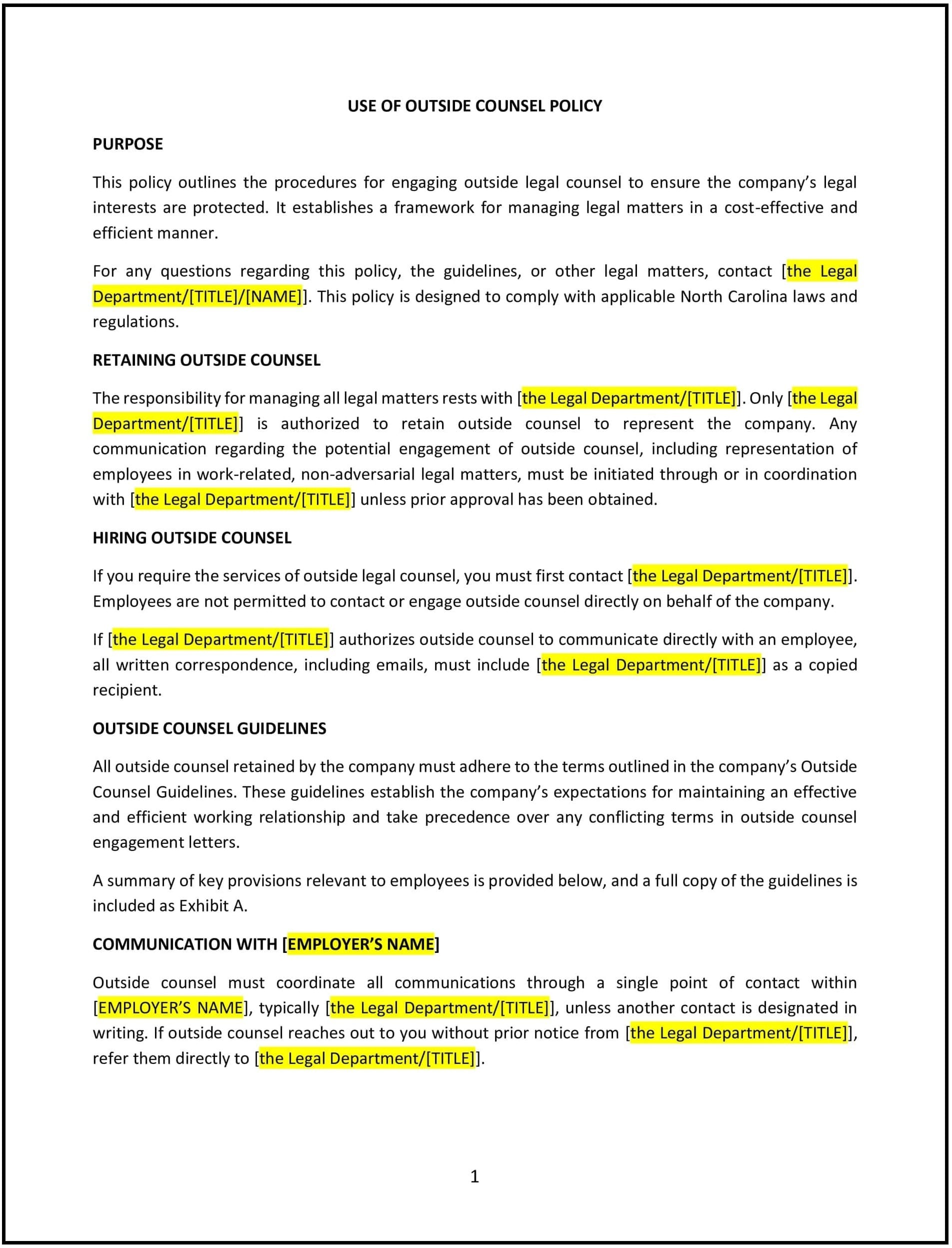Use of outside counsel policy (North Carolina): Free template
Got contracts to review? While you're here for policies, let Cobrief make contract review effortless—start your free review now.

Customize this template for free
Use of outside counsel policy (North Carolina)
This use of outside counsel policy is designed to help North Carolina businesses establish guidelines for engaging external legal counsel. It outlines procedures for selecting, managing, and collaborating with outside attorneys to address legal matters effectively.
By adopting this policy, businesses can strengthen alignment with legal requirements, manage costs, and ensure high-quality legal representation.
How to use this use of outside counsel policy (North Carolina)
- Define outside counsel: Clearly explain what constitutes outside counsel, such as law firms or independent attorneys hired for specific legal matters.
- Establish selection criteria: Provide guidelines for evaluating and selecting outside counsel, including expertise, cost, and reputation.
- Outline engagement procedures: Describe the steps for engaging outside counsel, including approval processes and contract terms.
- Address communication protocols: Explain how internal teams will collaborate with outside counsel, ensuring clear and consistent communication.
- Set billing guidelines: Specify expectations for billing practices, such as detailed invoices and cost estimates.
- Train employees: Educate staff on the policy and their responsibilities when working with outside counsel.
- Review and update: Assess the policy annually to strengthen alignment with evolving legal needs and business goals.
Benefits of using this use of outside counsel policy (North Carolina)
This policy offers several advantages for North Carolina businesses:
- Enhances legal representation: Ensures access to specialized expertise for complex legal matters.
- Manages costs: Establishes clear billing guidelines and cost controls for legal services.
- Promotes consistency: Provides a structured approach to engaging and collaborating with outside counsel.
- Reduces risks: Strengthens alignment with legal requirements, minimizing potential liabilities.
- Builds trust: Demonstrates a commitment to ethical and effective legal practices.
Tips for using this use of outside counsel policy (North Carolina)
- Communicate clearly: Ensure all employees understand the policy and their responsibilities when engaging outside counsel.
- Provide training: Educate employees on selecting and collaborating with outside counsel effectively.
- Monitor performance: Regularly review the performance and billing practices of outside counsel.
- Encourage feedback: Seek input from employees and outside counsel to improve the policy and processes.
- Update regularly: Review the policy annually to strengthen alignment with evolving legal needs and business goals.